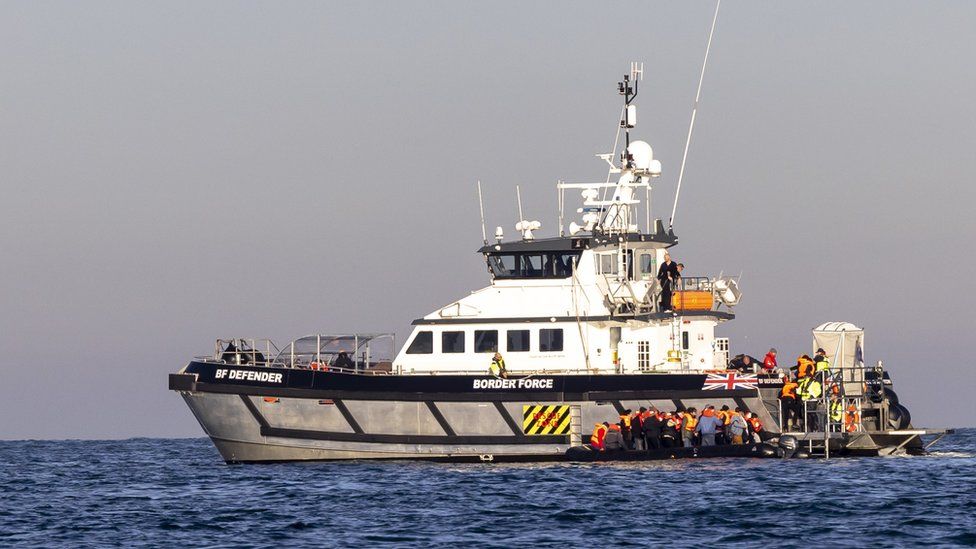ARTICLE AD BOX
 Image source, Getty Images
Image source, Getty Images
By Chris Mason
Political editor, BBC News
The government hopes that its plan to send some asylum seekers to Rwanda will be the law of the land before the week is out.
MPs will vote on it, again, later.
It follows the latest attempts by the House of Lords to change it, which are expected to be rejected by the Commons tonight.
This is what is known in Westminster as "ping pong", where a draft law flips back and forth between MPs and peers.
Peers in the House of Lords are trying to make changes to the government's planned new law and have sent those proposals back to MPs in the Commons as the bill approaches the end of its parliamentary stages.
The bill is expected to return to the Lords on Tuesday, probably to be amended again, then return to the Commons for the removal of those amendments, before going back to the Lords, probably on Wednesday evening.
At that point, I'm told, it's likely opposition in the Lords could diminish, and the bill could pass.
It would then go for what is known as Royal Assent, where the King, as a formality, agrees to make it an act of parliament.
Enter then, the big question: how soon after that could we see migrants on planes to Rwanda?
The government is not putting a specific time frame on it, other than maintaining that it seeks to do so in the spring.
By my reckoning that gives them until the end of May.
Folk I talk to in government talk down how many asylum seekers they are likely to send.
But they talk up their desire for plenty of flights to go, with at least some, perhaps dozens, of people on board.
The rationale - the hope - is this starts to put people off getting in small boats to cross the English Channel.
But ministers are braced for further legal challenges.
The plan becoming law is not the end of the argument.
Labour maintain that the whole idea is an expensive waste of time, which they would scrap, even if it is up and running.
Meanwhile, in the bowels of the Home Office, there are early stage plans about widening the scheme out beyond Rwanda.
I have seen internal documents - albeit from several months ago - that refer to discussions with countries including Costa Rica, Côte d'Ivoire and Armenia.
These plans are in what was described to me as a "holding pattern", with other countries rather keen to see if the Rwanda plan actually gets going before trying anything similar themselves.

 1 year ago
39
1 year ago
39








 English (US) ·
English (US) ·